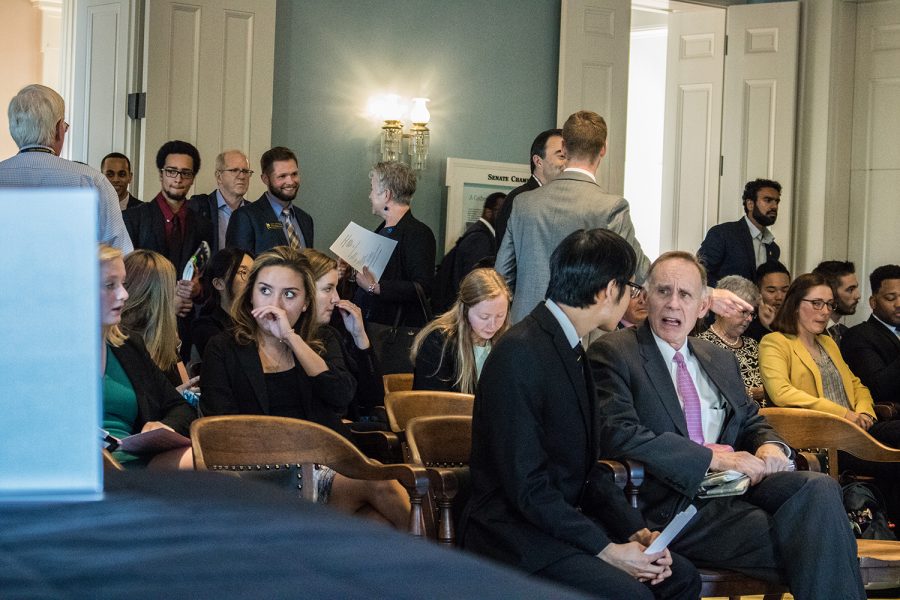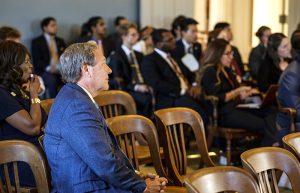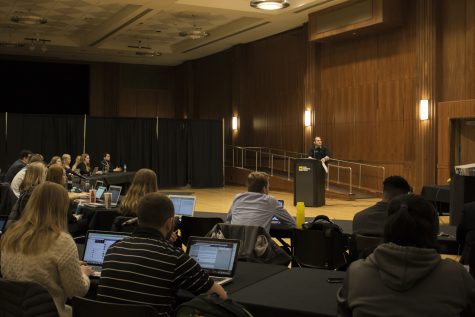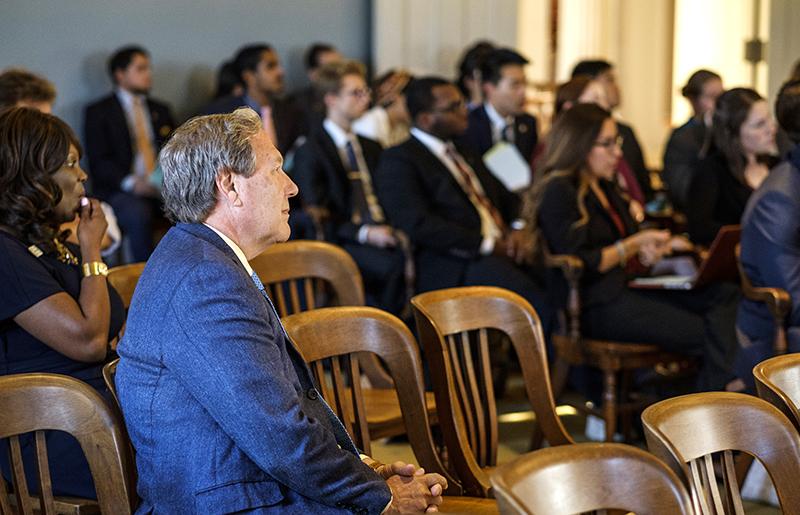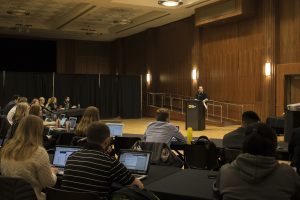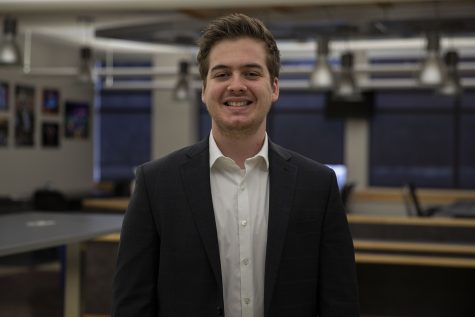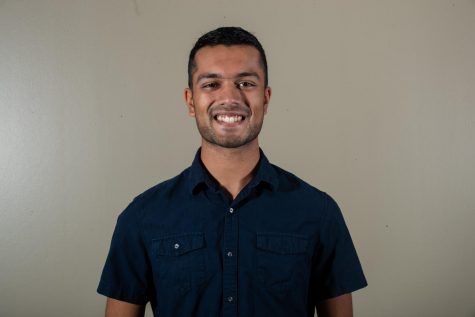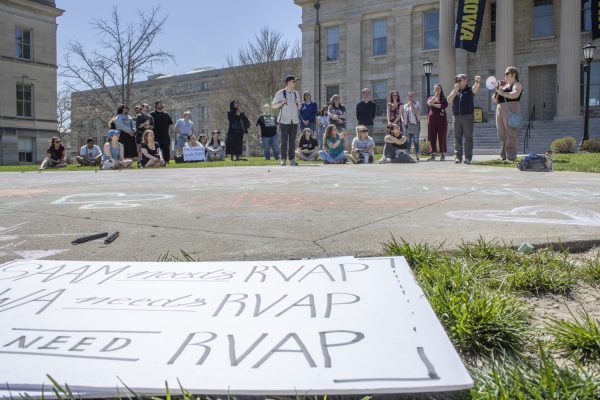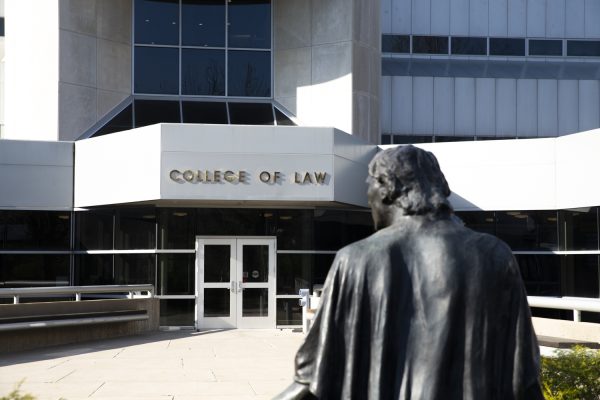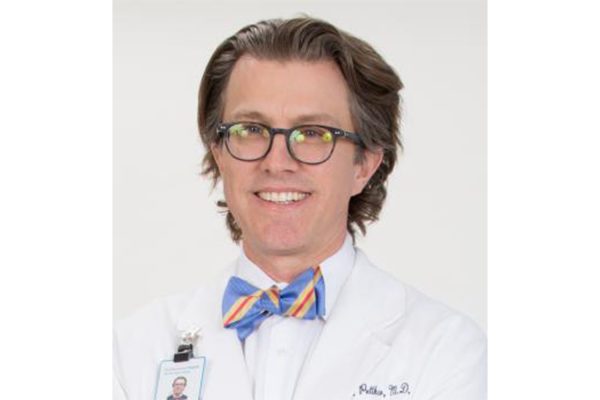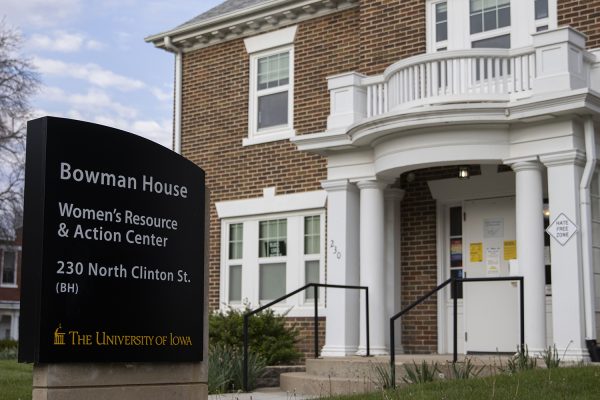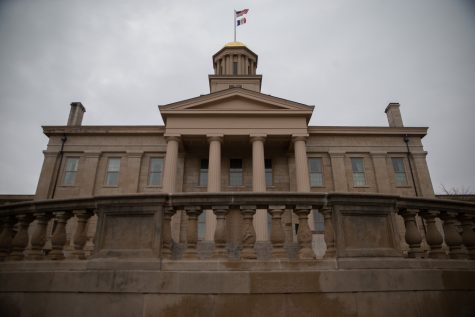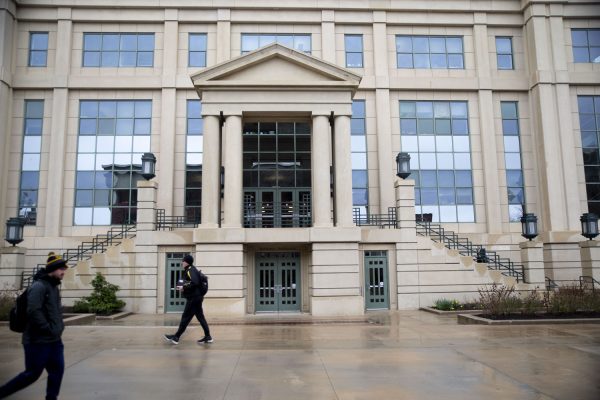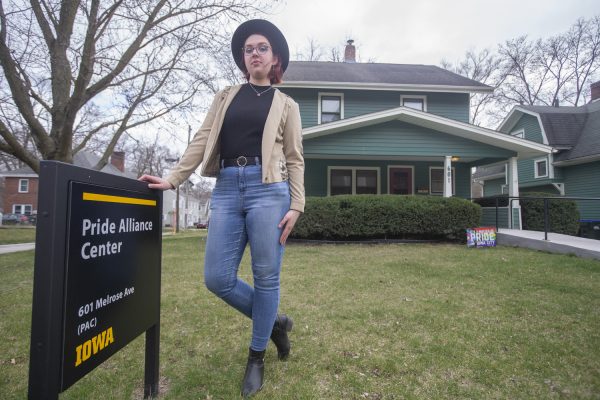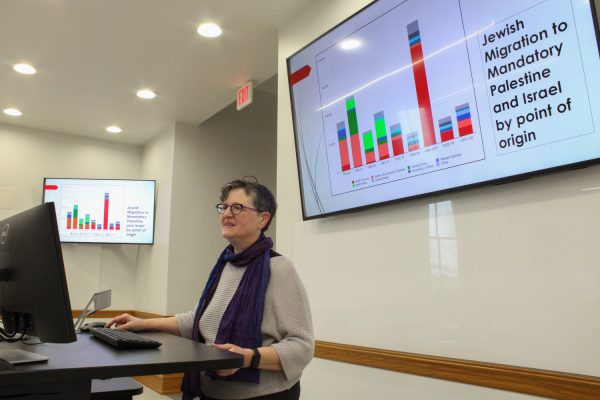UISG and GPSG discuss tuition, collaboration in annual joint meeting
Student government leaders and President Bruce Harreld spoke on collaboration among different levels of university government.
Members of UISG and GPSG join for a meeting in the Old Capitol Senate Chamber on Tuesday, Sept. 11, 2018. The annual meeting was initiated with a brief introduction by President Bruce Harreld.
September 12, 2018
Shared-governance leaders stressed the value of collaboration among the student governments and university administration on Tuesday at the annual joint session of the undergraduate and graduate student governments.
University of Iowa undergraduates, graduate students, faculty, and administrators filled the Old Capitol Senate Chambers for the meeting.
UI Student Government President Hira Mustafa and Graduate & Professional Student Government President Dexter Golinghorst spoke at the meeting, as did UI President Bruce Harreld.
The meeting began with an address from Harreld that touched on leadership, collaboration, student success, and the future of the university.
He started by speaking about good leadership principles. He noted the balance that student-government members need to find when it came to representing their constituents.
“This issue of how much you listen to yourself versus how much you listen to others is, I think for leaders, a fundamental issue,” he said.
Harreld also stressed the value of collaboration among students and faculty. He urged faculty to bring students into their processes and for students to get faculty involved in theirs.
“If we’re really on the same team, we have a direct obligation to bring each other up,” he said.
Harreld also covered a topic of contention for students: tuition. Tuition at the UI is among of the lowest of the Big Ten universities, he said, and he again advocated for it to be increased in the future.
Mustafa echoed much of the same beliefs as Harreld in her address at the meeting. She praised the value of the different sections of university governance working together, noting that students, faculty, and administrators often have the same goals.
“Issues like mental health and state budget cuts do not discriminate based on position,” she said. “Our institution is more successful when the branches of shared governance work together.”
Golinghorst was last to speak, and he also encouraged collaboration among students and faculty.
“Now more than ever, we must work together to develop solutions to the challenges that affect our community,” he said.
Golinghorst spoke on the question of tuition as well, noting that increases in tuition rates have been a challenge for students. Still, he said, the rising price of tuition at the UI is worth the education students receive.
“The value of a degree from the University of Iowa is extremely high,” he said.
Golinghorst noted diversity, equity, inclusion, sustainability, and safety as areas he wants the university governments to focus on.
Following the speeches, three resolutions were passed jointly by UISG and GPSG. The resolutions touched on areas that both student governments indicated they would like to focus on in the coming year.
The first, a joint resolution on academic programming, was a call for increased focus on supplemental academic programming in the future. The student governments noted ICON Direct and Supplemental Instruction as two great examples of this.
The second resolution was a call for student governments and their constituents to advocate for the state Legislature to increase funding to the state Board of Regents in order to keep tuition prices down.
Finally, the student governments passed a resolution to create an easy way to subscribe to all university multicultural events on Outlook calendar. The goal of the resolution is to increase visibility of multicultural events across campus and increase student involvement in them.



